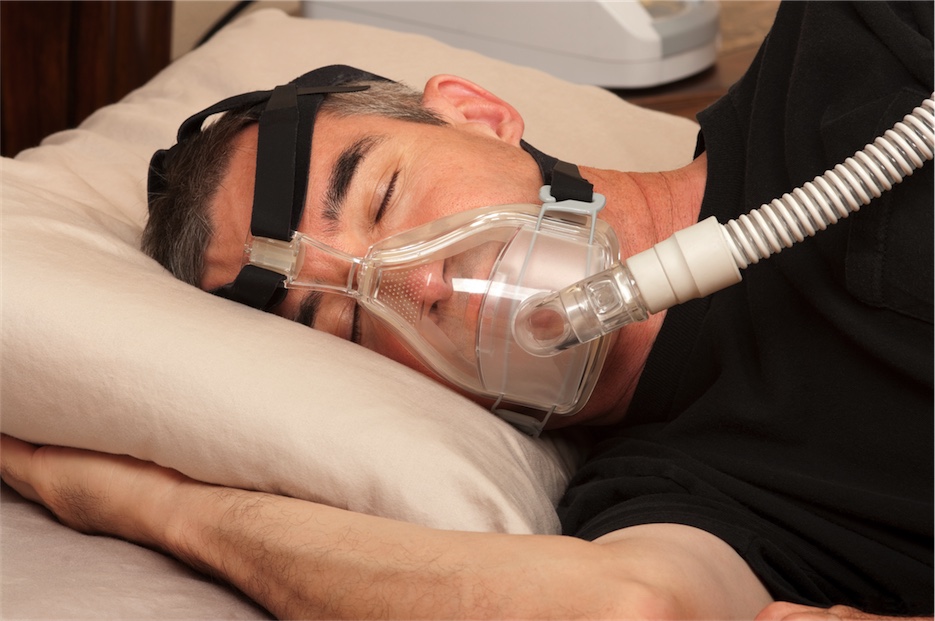Vitamin D and sleep
If you’re one of the estimated 40% of Australians who has sleep issues, you’ve probably tried many things to get your sleep back on track. An increasingly common but often overlooked contributor to the inability to get deep, refreshing sleep is low Vitamin D levels.
Sleep is a complex physiological process, and there is still much to learn. I’m by no means implying Vitamin D is a magic bullet for all your sleep woes. However, emerging research is suggesting it is well worth considering as a possible contributing factor.
Vitamin D, what is it?
Vitamin D is a fat-soluble nutrient which has many and varied actions in the body. It operates both as a hormone and a vitamin1.
Vitamin D plays a role in:
- Immunity
- Bone health
- Calcium absorption and metabolism
- Brain detoxification
- Muscle strength
- Insulin secretion
Sources of Vitamin D
Food
There are small amounts in food, including fish liver oils (cod, halibut, herring
Some countries fortify milk and fruit juice with Vitamin D, but this is not a standard practice in Australia.
Sunshine
We get 80-100% of our Vitamin D from the action of UVB light from the sun on our skin. This is a 2-3 day process which converts cholesterol in the skin layer to vitamin D using enzymes in the liver and kidney. Sunlight production of Vitamin D is affected by the season, latitude, skin
The role of Vitamin D in sleep
The role of vitamin D and sleep is an ongoing area of research, but currently, it is thought vitamin D regulates sleep by both primary and secondary mechanisms.
Primary
Vitamin D receptors (VDR) are located in the area of the brainstem, which controls sleep. In animal models, these activate pacemaker cells involved in going to sleep and staying asleep.
Observational studies in humans have found Vitamin D levels of less than 50nmol/L are associated with a 60% increased risk of sleep apnoea4. It is also associated with shorter sleep duration and reduced restorative slow-wave sleep5.
There is some evidence to suggest Vitamin D affects brain serotonin levels and supports the regulation and release of the sleep hormone melatonin 6.
Secondary causes
Inflammation
Vitamin D helps keep inflammation in check. People with low Vitamin D levels have been observed to have higher amounts of pro-inflammatory mediators such as TNF-alpha, interleukin-1 and Prostaglandin D27. These will interfere with the ability to sleep. Inflammation is also a driver of pain, immune and metabolic dysregulation.
Pain
Anyone with a chronic pain condition will already know the challenges this presents to sleeping well. One of the symptoms of Vitamin D deficiency is chronic, non-specific pain. Studies have shown army veterans with chronic pain had an improvement in sleep when supplemented with Vitamin D6.
Corticosteroid medication often used to manage chronic pain may also deplete Vitamin D levels.
Immune
Low vitamin D increases the risk of chronic sinus infections and respiratory conditions. This can result in enlarged tonsils and nasal polyps, which impede the airways, increasing the likelihood of developing sleep apnoea8.
Depression
Depression and sleep have a bi-directional relationship. A lack of quality sleep increases the risk of mood disorders and having depression contributes to sleep issues.
Brain areas linked to the development of depression have a large amount of VDR. It is thought Vitamin D is protective against neuro-inflammation and increases the availability of serotonin and dopamine 9. Although the exact mechanisms between Vitamin D and depression are yet to be fully elucidated a 2013 meta-analysis found a significant association 10.
Sleep disorders and Vitamin D
A recent systematic review has found low Vitamin D is associated with an increased risk of sleep disorders such as Obstructive Sleep Apnoea (OSA) and Restless Legs Syndrome (RLS) 4.
Obstructive Sleep Apnoea
Low vitamin D contributes to sleep apnoea by:
- Decreased muscle strength –myopathy. Weakness in the pharyngeal dilator muscle makes it more likely to collapse
- Reduced immune function and increased susceptibility to respiratory tract infections
- Increased inflammation
OSA also feeds back into low Vitamin D status. Due to daytime sleepiness, you are less likely to be outdoors and get your daily dose of sunshine 11.
Restless leg syndrome
Recent research links RLS to changes in brain dopamine function.
Vitamin D is essential for protecting dopaminergic neurons from toxins which could impair the function of the action of dopamine 12.
Who is at risk for low vitamin D?
- Indoor workers
- People who use sunscreen all the time when outdoors. (Refer to the Cancer Council guidelines on safe sun exposure)
- Genetic polymorphisms in the Vitamin D receptor
- Darker skin types especially those living at higher/lower latitudes
- Obesity – Vitamin D is deposited in fat cells and is not available
- Malabsorption (Conditions affecting bile production such as Cystic Fibrosis, Gallbladder Removals and Coeliac Disease)
- Medications: Long term use of steroids and anticonvulsants
- Smokers
- Regular alcohol consumption in the moderate to high range8
What do you do for low Vitamin D?
Test
If you think you may be at risk for low Vitamin D levels, check with your doctor and arrange to test. In Australia, sufficient levels of Vitamin D are considered anything > 50nmol/L at the end of Winter.
Vitamin D levels do take some time to increase so I wouldn’t recommend retesting for at least three months.
Safe sun exposure
Aim to get regular amounts of safe sun exposure to support your Vitamin D levels. Sunshine does not come in a bottle! Small, daily amounts of sun exposure on your arms and legs are preferable and present less risk than spending one day a week baking yourself in the sun. Always keep your face covered.
**If you have a history of skin cancer, be sure to check with your doctor if this is appropriate for you.
Food sources
Include food sources discussed above in your daily diet.
Supplementation
Vitamin D can be supplemented. I advise against doing high amounts unless under medical supervision. Consider combining it with a Vitamin K supplement to ensure the extra calcium absorbed from your digestive tract goes to your bones and not your arteries. Vitamin D also works best when there is adequate Vitamin A and magnesium to support it. If in doubt, work with a health care professional to guide you in the appropriate supplement program for your needs.
If you enjoyed this you may also like:
Restless Legs Syndrome: the most common disorder you’ve never heard of
Nutrients and lifestyle tips to support obstructive sleep apnoea
The role of magnesium in sleep
References:
- Braun L, Cohen M. Herbs & Natural Supplements: An Evidence Based Guide. 3rd ed. Chatswood, NSW: Elsevier; 2010.
- Rhee HJ Van Der, Vries E De, Coebergh JW. Regular sun exposure benefits health. Med Hypotheses. 2016;97:34-37.
doi :10.1016/j.mehy.2016.10.011 - Zittermann A, Gummert JF. Sun, vitamin D, and cardiovascular disease. J Photochem Photobiol B. 2010;101(2):124-129.
doi :10.1016/j.jphotobiol.2010.01.006 - Gao Q, Kou T, Zhuang B, Ren Y, Dong X, Wang Q. The Association between Vitamin D Deficiency and Sleep disorders: A systematic review and meta-analysis. Nutrients. 2018;25:1-13.
doi :10.3390/nu10091395 - Bertisch SM, Sillau S, Boer IH De, Szklo M, Redline S. 25-Hydroxyvitamin D Concentration and Sleep Duration and Continuity : Multi-Ethnic Study of Atherosclerosis. Sleep. 2015;38(8):1305-1311.
- Id ED, Willenberg A, Batmaz İ, et al. Association of serum 25-hydroxyvitamin D concentrations with sleep phenotypes in a German community sample. PLoS One. 2019;July:1-17.
- Johnson K, Sattari M. Vitamin D deficiency and fatigue : an unusual presentation. Springerplus. 2015:10-13.
doi :10.1186/s40064-015-1376-x - Shin J, Kim B, Kim BY, Kim SW, Kim SW, Kim H. Is there an association between vitamin D deficiency and adenotonsillar hypertrophy in children with sleep-disordered breathing ? BMC Pediatr. 2018;18(196):1-8.
- Bertone-Johnson ER. Vitamin D and the occurrence of depression: Causal association or circumstantial evidence? Nutr Rev. 2009;67(8):481-492.
doi :10.1111/j.1753-4887.2009.00220.x - Anglin RES, Samaan Z, Walter SD. Vitamin D deficiency and depression in adults: systematic review and meta-analysis. Br J Psychiatry. 2013;202:100-107.
doi :10.1192/bjp.bp.111.106666 - Archontogeorgis K, Nena E, Papanas K, Steiropoulos P. The role of vitamin D in obstructive sleep apnoea syndrome. Breathe. 2018;14(3):206-215.
- Wali S, Alsafadi S, Abaalkhail B, Ramadan I, Abulhamail B, Kousa M. The Association Between Vitamin D Level and Restless Legs Syndrome : A Population-Based Case-Control Study. J Clin Sleep Med. 2018;14(4):557-564.

Need help with
Norelle Hentschel is an experienced Naturopath with a clinic in Stones Corner, South East Brisbane and also offers Telehealth consults Australia wide. She enjoys supporting her clients to reach their health goals.
Want more articles like this?
Receive a monthly digest of natural health information to help you become “health” sufficient!
PS. Your inbox real estate is precious, and we will never annoy you with sales pitches or share your details with anyone else. One email a month — that’s it.



